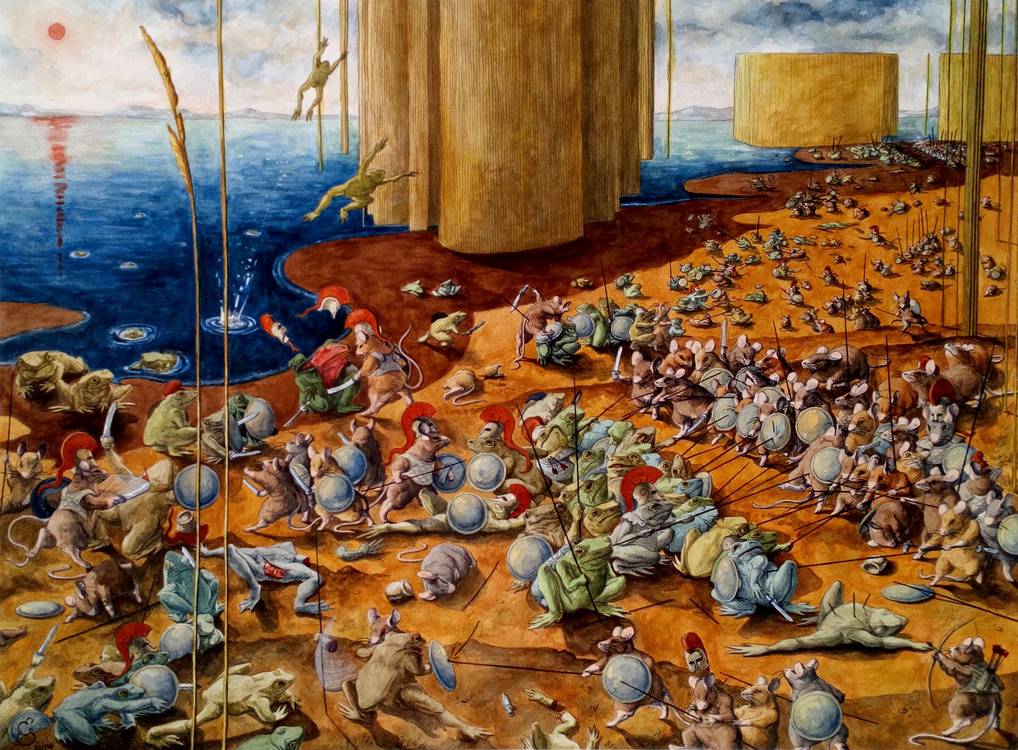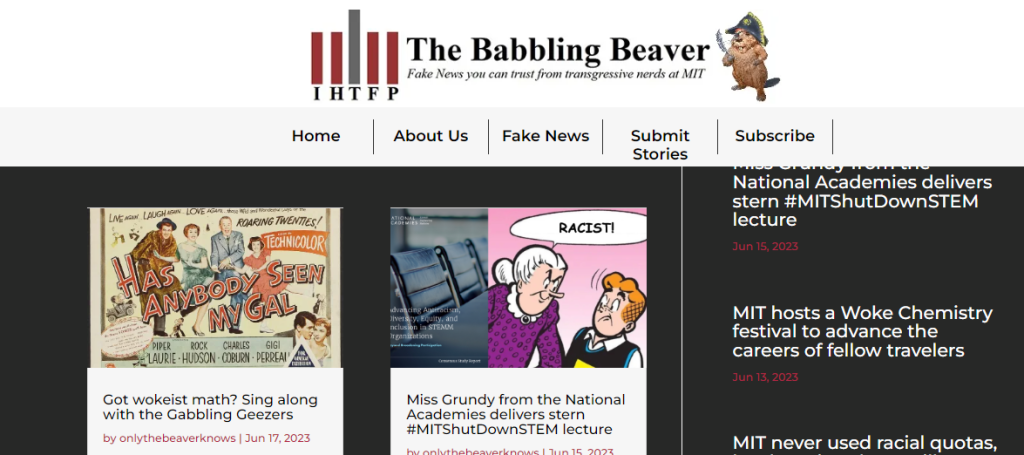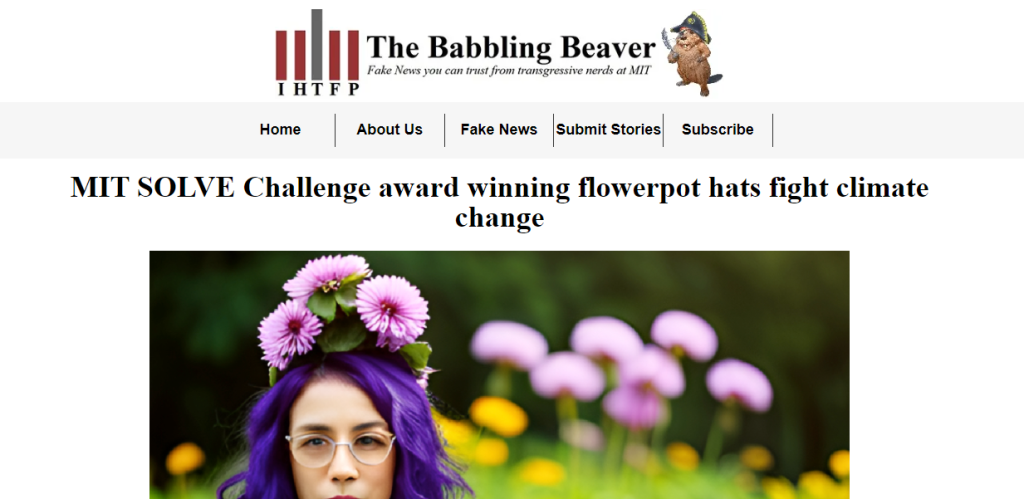First came The Babbling Beaver, a shadowy online news site featuring “fake news you can trust from transgressive nerds at MIT.”
Then came The Flickering Beacon, which promised readers “exclusive stories” of “wacky wokery” at the University of Massachusetts-Boston.
Cornell’s Babbling Bear appeared next, boldly proclaiming that “the right of Big Red Bears to babble shall not be infringed.”
These obviously aren’t real news outlets. Indeed, they wear their “fake news” press credentials proudly and defiantly, indicating that provocation is clearly the point. Look more closely and you’ll find that these sites, while “fake,” aim their barbs at a real problem — the “woke” monoculture that’s suffocating academic freedom, free speech, and viewpoint diversity on too many college campuses – using parody, satire, and ridicule to get their points across.
Mission statements help discern their purpose.
“The Babbling Bear irregularly publishes satirical samizdat anonymously contributed by loyal Cornell alumni, faculty, staff, and students who are distressed by its takeover by Systemic Totalitarianism imbedded in the New DEI Bureaucracy that is based on the postmodern philosophy that there is no objective truth,” says one.
“Strongly believing that no rigidly intolerant ideology merits exemption from scrutiny and debate, the Beaver is committed to speaking parody to power,” explains another. “We hope our anti-authoritarian humor emboldens those afraid to speak their minds, reviving the rebellious hacker spirit that made our university unique.”
The Flickering Beacon aspires to restore U-Mass Boston to its former glory as a world-class research university, “where knowledge is created and rigorous academic debate is held, fueled by a diversity of viewpoints,” not an institution “captured by the dark forces of performative Wokeness.”
Perusing the sites confirms that this is parody with a purpose — which is challenging the groupthink that holds almost total sway in academia. The posts are frequently witty, creative, biting and sometimes just silly, as each sacred cow of today’s woke university is poked, prodded, or mercilessly slaughtered.
Whether “woke” administrators, faculty, and students find all this funny is doubtful; no one likes being the butt of a joke. Many are no doubt furious, feverishly searching for culprits to cancel. But these sites are accomplishing something if they nag the conscience of some, quietly gratify others, turn just one sneer into a smile, or stir a rebellious spirit in those who just want to earn a degree or teach their classes without drawing the wrath of the inquisitors.
And it’s part of a protest tradition dating back to antiquity.
Parody and satire have been the rapier-sharp weapons of gadflies and dissidents dating back to Aristophanes, the Athenian playwright, and probably further. Poking fun is a relatively safe way for the social or political critic to puncture the pretentions of the pompous and the powerful, while minimizing the risk of backlash or punishment. Punches can be landed with a velvet glove. Veiling the message in humor or parable gives the critic the “plausible deniability” he or she needs to survive the backlash.
Such tactics are even more necessary under authoritarian regimes, in which dissenting voices can face harsh (even fatal) forms of reprisal. The court jester could get away with things that would cost other subjects their heads.
Aristophanes used his comedies — The Clouds, most famously — to lampoon the upper crust of Classical Athens and question the conduct of the Peloponnesian War. Marcus Valerius Martialis, also known as Martial, did the same in ancient Rome. Jonathan Swift’s Gulliver’s Travels has been interpreted as a satirical swipe at religious differences, European political intrigues, and the philosophy of Thomas Hobbes, whom Swift viewed as a dangerous radical. George Orwell’s Animal Farm famously employs barnyard animals to showcase the dark side of the Russian Revolution and Stalinism.
Benjamin Franklin’s 1773 work, “Rules by Which a Great Empire May Be Reduced to a Small One,” is just one example of how he used satire to win debating points. And it was Mark Twain, whose seemingly humorous stories often were aimed at telling his country uncomfortable truths about itself, who famously observed that “against the assault of laughter, nothing can stand.”
Fast forward to more recent times and good examples abound, from The Daily Show (which was “fake news” before one former President coined the term) to The Onion (a newspaper parody) to The Babylon Bee (a Christian-oriented parody site that was banned by pre-Musk Twitter for angering woke activists). Mad Magazine and National Lampoon, though not overtly political, frequently used subversive parody, ridicule, or mockery to make readers laugh at and think about “established norms.” The scathing editorial cartoons of the print era, though still with us, are gradually giving way to digital age “memes,” allowing any gadfly with photoshop to offer social or political commentary that can instantaneously be shared and seen by millions.
All of these employed humor — sometimes caustic, tasteless and controversial humor, admittedly – to score points, spark debate, and offer social or political commentary. Into this fray step these alternative news outlets.
Not everything posted on these sites hits the mark and this isn’t a blanket endorsement of what they post. But they don’t exist to make readers (or targets) comfortable. Quite to the contrary, in fact. They exist, in keeping with long tradition, to stir debate, challenge conventional thinking, call-out “woke” craziness, inspire and embolden dissident voices, and shatter the illusion that everyone at their alma maters march in lockstep.
“Humor, in all its forms, offers refuge for ideas that often defy the mainstream narrative,” says Karith Foster, a part-time comedian who also works as a Diversity, Equity, and Inclusion consultant and trainer. In email correspondence with ACTA, Ms. Foster said, “Comedians are the last bastion of free speech and expression in the world; and we should all be concerned when comedy and comedians, as a collective, come under fire. Without question comedy is subjective. But what comedy allows for is freedom; freedom to question, to criticize, to purge and to heal.”
Foster compares humor to Harry Potter’s cloak of invisibility, which makes room for “ideas and thoughts that might otherwise be sanitized and eradicated by the harsh light of critics. If anyone is going to save us from group think and Orwellian and draconian dogma, says Foster, “my money is on comedians.”
Who funds these platforms? Who provides the content? Are these spontaneous actions, or part of a coordinated effort? That is hard to answer because the work is done anonymously. Anonymity, although frowned upon by some, is arguably a necessity at a time when challenging the prevailing orthodoxy can get heretics attacked, de-platformed, cancelled or even fired, courtesy of a wrathful “woke mob.”
Will the emergence of such websites bring about necessary reform and change? It’s too early to say. But these sites are part of a broader movement, led by students, faculty, courageous administrators – a movement that increasingly includes alumni, trustees, and concerned benefactors – aimed at restoring to these schools the traditions of academic freedom and free speech that made them great. And in that context, we can’t help but welcome them to the fray.



